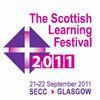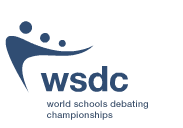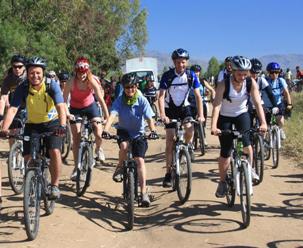

Global Citizenship blog
During the Scottish Learning Festival a number of seminars will focus on the potential of global citizenship as  a theme across learning. The seminars will range from an introduction to global citizenship within Curriculum for Excellence to the sharing of successful practices across education. The following seminars are of particular relevance:
a theme across learning. The seminars will range from an introduction to global citizenship within Curriculum for Excellence to the sharing of successful practices across education. The following seminars are of particular relevance:
Forest Pitch - an art project to develop global citizenship, Wednesday 21 September, 9.30;
Democracy and Global Citizenship in a Changing World, Wednesday 21 September, 9:30;
Leadership of global citizenship, Wednesday 21 September, 12.15;
Developing deep learning in an interdisciplinary context, Wednesday 21 September, 13.15;
Olympic, Paralympic and Commonwealth Games - Building the Legacy for Learning, Wednesday, 21 September, 13.15;
Climate Change - truth, controversy and evidence, Wednesday, 21 September, 14.30;
Developing Global Citizens in Early Years, Wednesday, 21 September, 15.45;
Renewable Energy Education - Western Isles and Glasgow City Council, Wednesday, 21 September, 15.45;
Developing Global Citizens - A rich context for learning, Thursday, 22 September, 9.30;
Climate Change and Forest; Using forests in learning and teaching about Climate Change, Thursday 22 September, 9.30;
Advancing The Curriculum For Excellence through Rights Respecting Schools, Thursday, 22 September, 10.45;
Oban High School, interdisciplinary learning and careers management through the topic of renewables in partnership with Skills Development Scotland, Thursday, 22 September, 10.45;
Building the Boat: Young People as C0-Producers of Policy, Thursday, 22 September, 12.00;
Excellence in LGBT equality education, Thursday 22 September, 13.15;
‘Education Showcase’ events:
A Human Rights Education conference aimed to raise the profile and encourage collaboration on human rights education and active citizenship in Scotland has been organised by BEMIS (www.bemis.org.uk) in association with a number of partner in Glasgow (City Chambers) on Thursday, 27th October 2011.
The conference is aimed at practitioners and education managers as well as local authority coordinators involved in the planning and delivery of human rights education. It will provide participants with the opportunity to gain an overview of current practice, exchange ideas and reflect as well as collaborate with practitioners and stakeholders on the development of this agenda. The following flyer and programme will provide you with more information on the event:
HRE Conference Flyer and programme BEMIS conference
For more information on this conference please contact:
BEMIS
Mrs Tanveer Parnez
Director of National Development
tel: 0141 548 8047
More This week the World Schools Debating Championships are taking place in Dundee, bringing students from around the world to Scotland to compete. BBC Scotland’s news story ‘Pupils debating in world schools championship’ describes the opening of the event, and the Times Educational Supplement Scotland article ‘Scots vie for world debating title’ provides additional coverage.
This week the World Schools Debating Championships are taking place in Dundee, bringing students from around the world to Scotland to compete. BBC Scotland’s news story ‘Pupils debating in world schools championship’ describes the opening of the event, and the Times Educational Supplement Scotland article ‘Scots vie for world debating title’ provides additional coverage.
It’s good to see Scotland hosting the event, playing a role in facilitating international dialogue and intercultural exchange, exposing hundreds of overseas visitors to the delights of this country. And it’s also great to see Scottish young people competing at such a high level, researching subjects, choosing an informed position, proving their worth as effective communicators by arguing with the best of them! Global citizens in the making.
Participants are updating a blog, so that others in Scotland and in their home countries can follow progress in the competition.
More Global citizenship activity comes in many shapes and sizes, but one of the most common variants involves teachers making a personal voluntary contribution to educational development in another country. Teachers are able to use their professional skills to assist growth and school improvement, and gain a much greater understanding of key global issues (such as sustainability) and of Scotland and its place in the world.
Global citizenship activity comes in many shapes and sizes, but one of the most common variants involves teachers making a personal voluntary contribution to educational development in another country. Teachers are able to use their professional skills to assist growth and school improvement, and gain a much greater understanding of key global issues (such as sustainability) and of Scotland and its place in the world.
Over the academic year and summer vacation of 2011 there will have been hundreds of teachers and students involved in school partnership work in sub-Saharan Africa. Because of the historic links between the two countries, and the efforts of charities such as the Scotland Malawi Partnership, many of these partnerships are between schools and communities in Scotland and their counterparts in Malawi. For example:
Glasgow City Council has become involved at authority level to share its expertise with a region of Malawi, working with charity Link Community Development in a new project called Malawi Leaders of Learning. This week’s Times Education Supplement Scotland article, titled ”the warm heart of Africa“, reports on the new partnership and the visit to Malawi of Glasgow’s Director of Education. This new relationship builds on a base of strong existing partnerships between some schools in Glasgow and Malawi and the work of participants in LCD’s ‘Global Teachers’ programme.
Link Community Development also took some teachers to Malawi this July as part of a fundraising initiative called Bike Ride 2011. A group cycled through large parts of the country, staying in local communities as they travelled and visiting education projects supported by LCD funding. The experience is described online, and one of the cyclists blogged about his experience. The Courier newspaper published an article about a local Perth participant. The charity is already recruiting bikers for 2012.
More We aspire to help create global citizens who understand Scotland’s place in the world. Now here’s an opportunity for children to think about Scotland’s place in the universe.
We aspire to help create global citizens who understand Scotland’s place in the world. Now here’s an opportunity for children to think about Scotland’s place in the universe.
The European Commission has launched a drawing competition for children aged 9-11 and living in the UK. The child who wins the competition will have a Galileo Programme Satellite named after them and launched into space, along with similar satellites named after other winners in the 27 European Union member states. To take part, each child must create and submit a piece of artwork based on the theme ‘Space and Aeronautics’. For example, this might be a picture of the Earth with other planets and satellites, or the launch of the rockets carrying the Galileo satellites. Children are invited to give free rein to their imagination and use any drawing, painting and colouring material and techniques they wish. Pictures must then be scanned or photographed and uploaded to the competition website by 15th November 2011. The winner will be announced at an awards ceremony where the child will be presented with a trophy representing the real satellite that will be named after them. Details online at http://www.galileocontest.eu/en/competition
The Galileo Satellite Programme is Europe’s independent satellite navigation system. The programme will launch at least 27 satellites, keeping Europe at the forefront of space-related technologies. The system will have many functions including transportation management and mobile phone applications. The Galileo Satellite Programme website provides background information. http://ec.europa.eu/enterprise/policies/satnav/index_en.htm
More Free Range Kids is all about putting the right to roam back at the heart of children’s lives. Today the average eight year old’s horizons extend a few hundred metres or, for some kids, to their back garden and bedroom.
Free Range Kids is all about putting the right to roam back at the heart of children’s lives. Today the average eight year old’s horizons extend a few hundred metres or, for some kids, to their back garden and bedroom.
Childhood should be a crucial time in our lives - a time to develop independence, explore, have fun, discover friendships, scuff our knees, and generally learn about life.
If you would like resource, ideas and activities to get learners active and outdoors then visit Sustrans new website at: http://www.sustrans.org.uk/freerangekids
More![lost4260_tcm4-663170[1]](../../../globalcitizenship/files/2011/08/lost4260_tcm4-6631701.jpg) The following new resources on outdoor learning have recently been added to the Education Scotland website.
The following new resources on outdoor learning have recently been added to the Education Scotland website.
These case studies highlight a number of different examples of the way that woodland environments can provide a rich resource and context for learning.
Lady of the Lake: A Literacy and Outdoor Learning Transition Project
This project was a partnership approach to an innovative transition process, involving the 14 feeder primaries to McLaren High, Stirling. This incorporated outdoor learning and collaboration with local artists to inspire creative works, just as Sir Walter Scott took inspiration from the landscape of the Trossachs 200 years ago to write the epic poem ‘The Lady of the Lake’. The resultant process and outcomes supported many aspects of literacy across learning.
In June 2010, 130 young people from Upper Deeside started working with local and national archaeology groups on what is thought to be the largest schools archaeology project of its kind in Scotland.
The project took place within the Cairngorms National Park, an area with a unique natural and cultural heritage, where the impacts of anthropogenic climate change are becoming a reality. The project aimed to involve young people in exploring these impacts, through the medium of film, and to identify opportunities and consider adaptations to climate change. This was an interdisciplinary project that allowed pupils to make connections between their learning in school and the world outside.
Working in partnership with Grounds for Learning, Education Scotland have developed a series of short video clips supporting various ways in which school grounds can be used and developed to support the Curriculum for Excellence. Scroll down the page to select from clips such as Messy Outdoors Maths, The Creative Spark in Literacy, Nature’s Playground and Fire as a Context for Learning.
More
Find us on